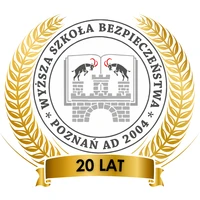Management
Management (or managing) is the administration of an organization, whether it is a business, a not-for-profit organization, or government body. Management includes the activities of setting the strategy of an organization and coordinating the efforts of its employees (or of volunteers) to accomplish its objectives through the application of available resources, such as financial, natural, technological, and human resources. The term "management" may also refer to those people who manage an organization.
Research
Research comprises "creative and systematic work undertaken to increase the stock of knowledge, including knowledge of humans, culture and society, and the use of this stock of knowledge to devise new applications." It is used to establish or confirm facts, reaffirm the results of previous work, solve new or existing problems, support theorems, or develop new theories. A research project may also be an expansion on past work in the field. Research projects can be used to develop further knowledge on a topic, or in the example of a school research project, they can be used to further a student's research prowess to prepare them for future jobs or reports. To test the validity of instruments, procedures, or experiments, research may replicate elements of prior projects or the project as a whole. The primary purposes of basic research (as opposed to applied research) are documentation, discovery, interpretation, or the research and development (R&D) of methods and systems for the advancement of human knowledge. Approaches to research depend on epistemologies, which vary considerably both within and between humanities and sciences. There are several forms of research: scientific, humanities, artistic, economic, social, business, marketing, practitioner research, life, technological, etc.
Security
Security is freedom from, or resilience against, potential harm (or other unwanted coercive change) from external forces. Beneficiaries (technically referents) of security may be persons and social groups, objects and institutions, ecosystems, and any other entity or phenomenon vulnerable to unwanted change by its environment.
Research
Hail, follow, well met,
All dirty and wet:
Find out, if you can,
Who's master, who's man.
Jonathan Swift, My Lady's Lamentation; reported in Hoyt's New Cyclopedia Of Practical Quotations (1922), p. 400.
Management
Management is defined here as the accomplishment of desired objectives by establishing an environment favorable to performance by people operating in organized groups. Each of the managerial functions (planning, organizing, staffing, , directing, and controlling) is analyzed and described in a systematic way. As this is done, both the distilled experience of practicing managers and the findings of scholars are presented. This is approached in such a way that the reader may grasp the relationships between each of the functions, obtain a clear view of the major principles underlying them.
Harold Koontz and Cyril O'Donnell. Principles of Management; An Analysis of Managerial Functions. 1968, p. 1
Research
In the course of describing my formative moment in 1978, I have already implicitly given my four basic rules for research. Let me now state them explicitly, then explain. Here are the rules:
1. Listen to the Gentiles
2. Question the question
3. Dare to be silly
4. Simplify, simplify
Paul Krugman, "How I Work", American Economist (1993)
